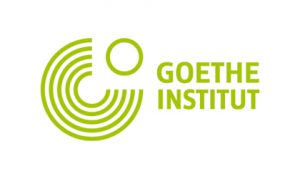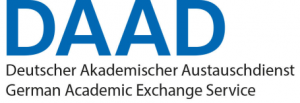
MASTER PROGRAM
Research Only (A1)

Coursework (A2)

1st Semester

2nd Semester

1st Semester Course Description
| Code | Courses | Credits(Lecture/Practice/Self-study Hours) |
| 090135104 | Production Management | 3(3-0-6) |
| Production management. Using operation to complete. Develop process strategy. Analyzing processes. Managing Quality. Total quality control. Planning capacity. Managing process constraints. Designing Lean system. Managing inventories. Designing effective supply chains. Locating Facility. Planning and scheduling operations. Managing demand. | ||
| 090135225 | Materials Selection and Design | 3(3-0-6) |
| Materials selection, especially together with other components fabricated by other materials. Ashby chart. Consideration criteria for materials selection: price, strength, density, thermal conductivity, thermal expansion, electrical conductivity, corrosion resistance, galvanic series, ability to recycle, alternative materials, green materials. | ||
| 090135110 | Manufacturing Technology | 3(3-0-6) |
| Mechanical properties of materials, Techniques used to determine those properties as well as basic polymer engineering rheological properties The second part will overview a principle of manufacturing technologies, including forming (sheet and bulk) processes, casting process and powder metallurgy process as well as polymer processing Some specific in forming technologies such as sheet and bulk forming using case studies to the emphasis in the ongoing research in those processes. | ||
| 090135213 | Transport Phenomena in Materials Engineering | 3(3-0-6) |
| Fundamentals of heat transfer, mass transfer and fluid flow (momentum transport) in metallurgical and materials processing. Thermal conductivity, Fourier’s law, heat conduction, convection, radiation, system boundaries, one dimensional steady state heat conduction, transient heat conduction, numerical methods for heat conduction, mass diffusion, Fick’s law, viscous behavior of fluids, conservation laws, fluid statics, laminar and turbulent flow. | ||
| 090135217 | Polymer Processing | 3(3-0-6) |
| Principle and application of polymer processing. Practical detail of conventional process such as extrusion, injection, blow molding, compression, thermo forming, and rotational molding. | ||
| 090135222 | Machine Tools | 3(3-0-6) |
| Introduction to various machine tools. Design of machine components. Optimization of machine components. Evaluation of machine tools. Measuring instruments for machine tools evaluation, Automation technology for machine tools. Control systems, Numerical control. Communication technology and command control, Integrated manufacturing systems, Machine tool monitoring and diagnosis, Artificial intelligence in machine tool monitoring. |
2nd Semester Course Description
| Code | Courses | Credits(Lecture/Practice/Self-study Hours) |
| 090135108 | Materials Testing | 3(2-2-5) |
| Basic of materials testing, tensile testing, compression testing, long period creep testing, bending testing, torsion testing, hardness testing, Charpy testing, fracture mechanic testing, fatigue testing, safety analysis, non-destructive testing, finite Element Method, statistical process control, polymer identification polymer compounding and polymer processing | ||
| 090135223 | Quality Systems Management | 3(3-0-6) |
| Quality management theory and industrial applications. Statistical quality control. Stabilizing and improving process. Quality cost and Loss function. Quality consciousness and types of control chart. Variable control charts. Attribute control charts. Operating characteristic functions. Process capability and statistical tolerance. Inspection policy. Acceptance sampling plans. | ||
| 090135224 | Finite Element Method Simulation Techniques | 3(3-0-6) |
| Fundamentals in Finite Element Method, Concept of stiffness analysis, Stiffness matrix for assembly of springs, Solution procedure, Application to frameworks and several networks; Finite Element Methods to model in metal forming processes, Forging process, Sheet forming process, Blanking process. | ||
| 090135232 | Selected Topic in Materials Engineering: Material for Energy Applications | 3(3-0-6) |
| Lectures, seminar, and independent investigations or studies in selected areas of material engineering, emphasizing in advanced applications and processing of materials | ||
| 090135225 | Materials Selection and Design | 3(3-0-6) |
| Materials selection, especially together with other components fabricated by other materials. Ashby chart. Consideration criteria for materials selection: price, strength, density, thermal conductivity, thermal expansion, electrical conductivity, corrosion resistance, galvanic series, ability to recycle, alternative materials, green materials. |
READ MORE
Courses available upon request
Ph.D. PROGRAM (Research Only)

Course Description
| Code | Courses | Credits(Lecture/Practice/Self-study Hours) |
| 090146198 | Dissertation | 54(0-0-54) |
| Research procedure in interesting topics both in foundation knowledge and industrial aspects with analytical and research problem solving processes to gain fundamental knowledge and/or to originally improve related processes or with significant development or to be applied expecting significant impact. The dissertation is based on referencing related fundamentals and theories, defining the research purpose, scoping the work, literature review, model development, experimental plan and procedures, analysis of data and results, discussion of the results, drawing conclusions and outlook for further research. The candidate has to pass the qualifying exam, dissertation proposal, progress examination, and finally defense exam. The output of the dissertation must be delivered as research articles in international journals as well as dissertation. |


